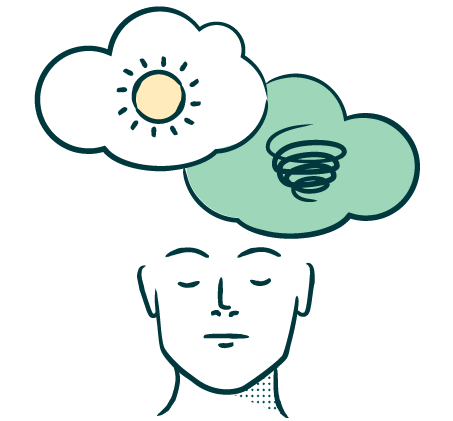YOUR MENTAL HEALTH&YOU

WHY YOUR EMOTIONS ARE CONTAGIOUS (AND HOW TO PROTECT YOUR PEACE)
Have you ever noticed how someone else’s mood can instantly rub off on you? Maybe a friend’s sadness leaves you feeling heavy, or a coworker’s stress suddenly makes you tense. On the flip side, laughter, smiles, and positive energy can be just as infectious.
This ripple effect is called emotional contagion—the phenomenon where we unconsciously “catch” the emotions of others.
What is Emotional Contagion?
Emotional contagion happens when someone else’s emotions influence your own without you even realizing it. It could come from the people around you, or even from what you consume online—like negative news, dramatic content, or endless scrolling on social media.
Empathetic people tend to experience this more deeply. Sometimes it’s uplifting (like catching joy from a cheerful friend), but other times it can be draining and even affect your mental health and relationships.
How Does It Happen?
It all goes back to how we learned to connect as humans. As babies, we instinctively mirrored emotions—smiling back at a smile or crying when hearing another baby cry. That natural mimicry continues into adulthood.
Think of it like yawning when someone else yawns. If someone laughs, you might laugh too. If someone is anxious or angry, you may feel your own emotions shift in that direction.
The people you surround yourself with matter. A positive company can help you feel more optimistic, while constant negativity can make it easier to slip into pessimism.
Everyday Examples
You feel sad after hearing a friend’s emotional story.
A waiter greets you with a smile, and you instantly feel more cheerful.
A stressed coworker makes you feel on edge, even if you weren’t before.
A leader’s calmness boosts team morale, while an anxious leader spreads tension.
Doomscrolling online leaves you feeling upset, even when nothing happened to you directly.
And yes—laughter is contagious too!
How to Protect Yourself from Negative Contagion
The good news is you don’t have to be swept away by other people’s emotions. Here are some ways to manage it:
Check in with yourself: Notice how you feel around certain people or situations.
Practice mindfulness: Stay present through meditation, deep breathing, or simply pausing before reacting.
Set boundaries: Step back from negative conversations or draining interactions.
Choose your response: Remember—you may not control others, but you can control how you react.
Focus on gratitude: Start your day with intention and reflect on three positive things daily.
Limit media consumption: Reduce time spent on negative news and endless scrolling.
Prioritize wellness: Exercise, eat well, and maintain healthy habits that support emotional balance.
Seek support: A therapist can help you build resilience and coping strategies.
At the end of the day, we can’t avoid emotions—but we can decide which ones we let stick. Surround yourself with positivity, nurture your own peace, and remember: just as negativity spreads, so does kindness, joy, and laughter.
"This represents a significant development in our ongoing coverage of current events."— Editorial Board









